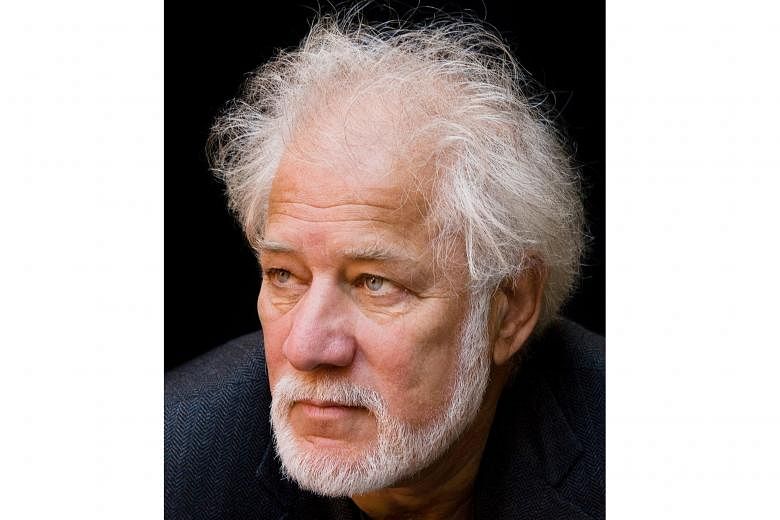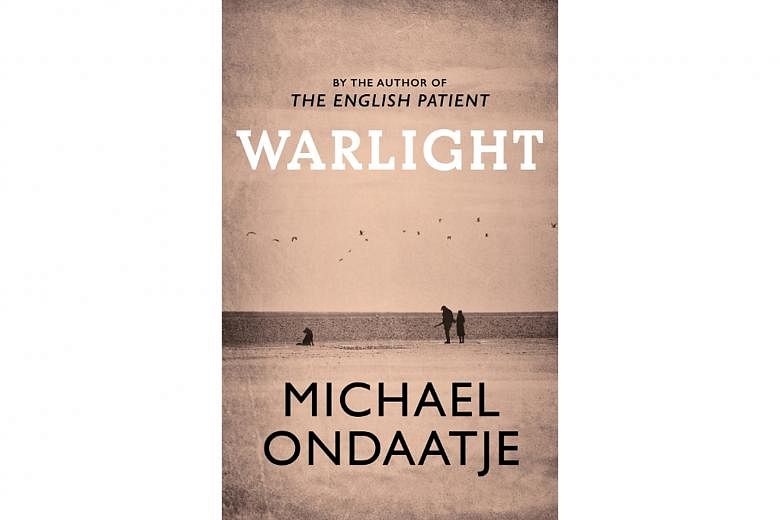FICTION
WARLIGHT
By Michael Ondaatje
Jonathan Cape/ Paperback/ 287 pages/ $29.42/ Books Kinokuniya
4.5 stars
War ghosts and unspeakable wounds haunt Canadian writer Michael Ondaatje's seventh novel, which presents flickering glimpses of the crepuscular, crumbling city that is post-war London, through the eyes of a boy learning to parse the secret life of his absent mother.
In 1945, 14-year-old Nathaniel and his older sister Rachel, who has epilepsy, are left behind by their parents, who are ostensibly moving to Singapore because of a promotion their father has received.
In the meantime, their house has become the gathering place of various enigmatic maybe-criminals, with names such as The Moth - their large, quiet caretaker described as "a man of many doors" - and The Pimlico Darter, a freewheeling, amoral former boxer.
In this shadowy world where the rules have grown nebulous in the wake of the war, Nathaniel and Rachel skip school in favour of an unorthodox education under their mysterious guardians.
By day, Nathaniel works in hotels and restaurants; by night, he assists The Darter in smuggling greyhounds by river, or breaks into houses with his lover, a girl who calls herself Agnes Street after the first address they invaded.
But strange men keep following him and his sister around the city, and it is not long before the real reason for their parents' disappearance catches up with them.
Years later, an adult Nathaniel - now working in government intelligence and estranged from a resentful Rachel - tries to piece together his mother's covert career as a spy codenamed Viola, and to reconcile himself with her sins.
The understated eloquence of Ondaatje, who co-won the Man Booker prize in 1992 for The English Patient, another novel set on the fringes of World War II, is in fine form here, his writing simultaneously as plain and profound as the play of light and shadow on a wall.
He enlists the language of war in layering both beauty and menace within simple little phrases - a "bomber's moon", a night when cities and towns are in blackout, but the landscape is bright in the moonlight; a "street of small daggers", a horrible episode on one of his mother's missions distilled into the deceptive innocence of an address.
An air of portent hangs over everything. The Moth tries to impress this upon the children via the German term "schwer", which Mahler used in his musical scores to indicate a certain heaviness.
Nathaniel and Rachel - and through them, the reader - learn to live in anticipation of "schwer", the constant feeling that nothing is safe any more. As one moves through the story, one comes to realise that nothing, for Ondaatje, is throwaway; every tiny thing - a childhood story, a line in a poem - will come into play at a darker time.
"You return to that earlier time armed with the present," notes Nathaniel in his attempts to untangle the riddle of his mother, "and no matter how dark that world was, you do not leave it unlit."
Warlight, with its secrets and silences, is not a novel for straight answers, but it sheds light with breathtaking intricacy on the shifting geography of memory.
If you like this, read: The Third Man by Graham Greene (Pan Macmillan, 1949, re-issued as part of The Third Man And Other Stories in 2017, $21.01, Books Kinokuniya). In the ruins of Allied-occupied Vienna, a pulp writer arrives in search of his friend, but is told he has been killed in an accident. Greene wrote the novella in preparation for the screenplay of Carol Reed's classic 1949 film noir.



